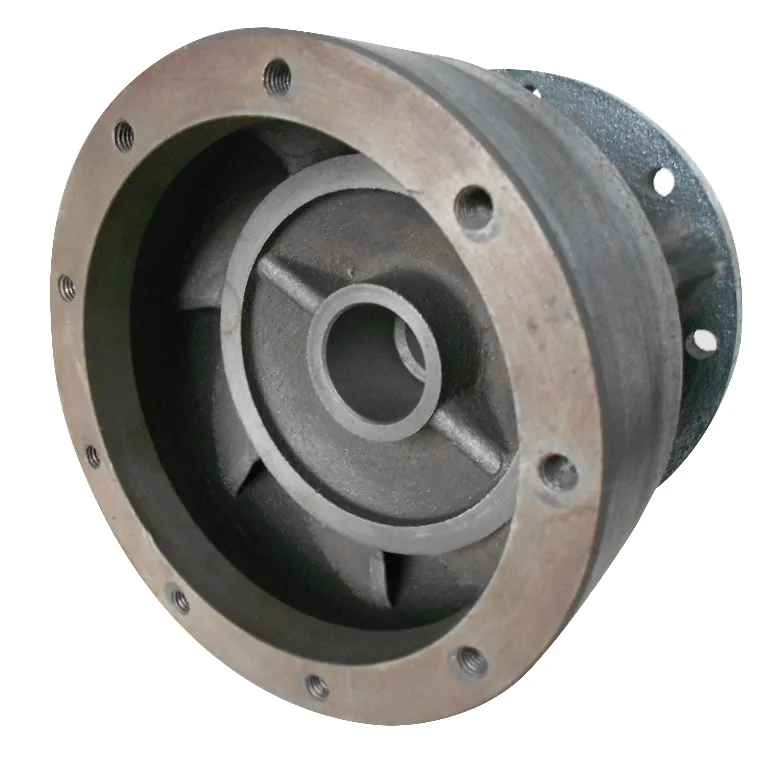Mobile:+86-311-808-126-83
Email:info@ydcastings.com
high pressure impeller
Understanding High Pressure Impellers Engineering Marvels for Efficient Fluid Dynamics
In the realm of mechanical engineering, the design and function of impellers play a crucial role in the efficiency and performance of various pumping systems. Among the various types of impellers, high-pressure impellers stand out due to their ability to effectively handle fluids under elevated pressure conditions. This article delves into the intricacies of high-pressure impellers, exploring their design, applications, advantages, and challenges.
What is a High-Pressure Impeller?
A high-pressure impeller is a rotating component typically found in centrifugal pumps and compressors, designed to increase the velocity and pressure of the fluid passing through it. These impellers are specifically engineered to generate a high discharge pressure while maintaining optimal efficiency. The design usually includes features like a high number of blades, specialized blade shapes, and robust materials to withstand the stress associated with high pressure.
Design Considerations
The design of high-pressure impellers involves a multitude of factors to ensure optimal performance. Key design considerations include
1. Blade Geometry The shape, angle, and size of the blades significantly influence the impeller's performance. High-pressure impellers often have a narrower blade channel to accelerate fluid flow and increase pressure. Blade angles are also optimized for accelerating fluid without causing excessive turbulence.
2. Material Selection Given the demanding conditions under which high-pressure impellers operate, material selection is crucial. Impellers are often made from corrosion-resistant alloys or composite materials that can withstand high mechanical stress, abrasion, and temperature variations.
3. Multistage Configuration To achieve very high pressures, impellers are often arranged in a multistage configuration, where multiple impellers work in series to boost pressure incrementally. This design effectively distributes the pressure buildup across several stages, minimizing the chances of component failure due to excessive force.
4. Size and Scale The size of an impeller is also vital; larger impellers can move more fluid but might struggle with high-pressure applications unless carefully designed. Balancing size against the necessary pressure output is a key engineering challenge.
Applications of High-Pressure Impellers
High-pressure impellers are vital components in several industries due to their efficiency in pressurizing fluids. Common applications include
1. Oil and Gas Extraction In oil refineries and natural gas processing plants, high-pressure impellers are used to transport fluids through pipelines under considerable pressure, ensuring efficient processing and transport.
high pressure impeller

3. Aerospace and Aviation In jet engines and other aerospace applications, high-pressure impellers are crucial for delivering air under high pressure to improve combustion efficiency.
4. Chemical Processing These impellers facilitate the movement of reactive chemicals under controlled pressure conditions, playing a vital role in maintaining efficient and safe chemical processing.
Advantages of High-Pressure Impellers
The use of high-pressure impellers offers several advantages
1. Increased Efficiency High-pressure impellers are designed to maximize fluid flow efficiency, reducing energy consumption and operational costs.
2. Enhanced Performance These impellers allow for the transportation of fluids over long distances and through various heights, making them ideal for applications where gravity alone cannot suffice.
3. Compact Design The ability to achieve higher pressures in a smaller size allows for more compact system designs, saving space and material costs.
Challenges and Considerations
Despite their benefits, high-pressure impellers also face challenges. One major issue is cavitation, which can occur when the pressure drops below the vapor pressure of the fluid, leading to bubble formation that can damage the impeller. Additionally, the complexity of design and the need for rigorous testing to ensure reliability can lead to increased manufacturing costs.
Conclusion
High-pressure impellers are engineering marvels that play a pivotal role in various industries. Their ability to effectively manage fluid dynamics under elevated pressure conditions underscores their importance in modern engineering applications. As technology advances, developments in materials and design techniques will continue to enhance the performance and efficiency of high-pressure impellers, paving the way for innovative solutions in fluid transfer and management systems. Whether in energy production, aerospace, or environmental management, high-pressure impellers are set to remain an integral part of engineering design.
-
Understanding Metal Casting TechniquesNewsApr.02,2025
-
Understanding Exhaust Manifolds for Enhanced Engine PerformanceNewsApr.02,2025
-
The World of Metal FabricationNewsApr.02,2025
-
Key Components for Pump and Turbo EfficiencyNewsApr.02,2025
-
Essential Tools for Automotive Maintenance and RepairNewsApr.02,2025
-
Durable Valve Components for Effective Water ManagementNewsApr.02,2025











